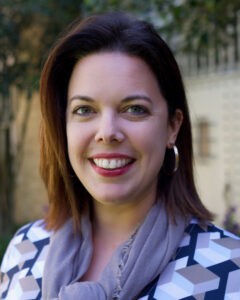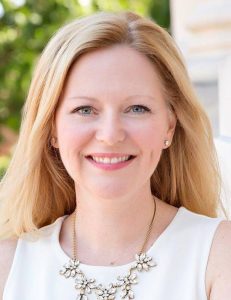A new anti-racism program will pair some of the nation’s leading experts and curriculum on white supremacy with white congregations seeking to uncover and confront their own histories related to discrimination and race.
“In Deed and Truth: Interrogating Legacies of White Church in America” will launch in the fall as a project of the St. Charles Center for Faith and Action in partnership with E Pluribus Unum and the Public Religion Research Institute.
“In Deed and Truth invites white, historic (at least 50 years old) congregations to tell the whole truth about their histories before then entering an intentional discernment process to determine how each local church will act upon the full knowledge of their origins,” the center explains on its open registration page.
Participating congregations will spend more than a year in the Zoom-based program “combing through their histories and undergoing anti-racism training,”
Participating congregations will spend more than a year in the Zoom-based program “combing through their histories and undergoing anti-racism training,” said Elizabeth Mangham Lott, senior pastor at St. Charles Avenue Baptist Church, the New Orleans congregation that launched the nonprofit St. Charles Center in 2019. Each church will be tasked with writing a report and developing initiatives such as anti-racism or diversity, equity and inclusion teams.

Elizabeth Mangum Lott
The examinations could date back to the slavery era for older churches while younger congregations may explore their responses to police brutality and other racial injustices throughout the pandemic.
“The process will include examining sins of omission and commission, like looking for those parts of church history that were redacted because it was embarrassing or shameful. And sometimes it may involve exposing those gaps where churches chose not to engage in something — like the Civil Rights movement,” she said.
The program will include monthly Zoom sessions led by speakers including Robert P. Jones, president of PRRI; Jonathan Augustine, an author, law professor and AME pastor in North Carolina; and Otis Pickett, a historian at Clemson University and the first to serve in E Pluribus Unum’s Eminent Scholar program devoted to addressing systemic racism in the South.
The inventory-taking approach being utilized by In Deed and Truth is similar to one E Pluribus Unum has been promoting on a much wider scale.
“Racism remains this nation’s Achilles’ heel,” the organization’s website explains. “If we do not face it and fix it, we will continue to suffer. We have a long way to go to fulfill America’s promise of justice and equal opportunity for every American. To get closer to fulfilling that aspiration, we first need a consensus about the history of racism in the U.S. and the effect it still has today. Facing our nation’s dark truths is the first step toward healing.”

Melissa Deckman
PRRI is developing a curriculum for the project that includes polling data, research and other information designed to inform and guide frank discussions around race, CEO Melissa Deckman said.
Participating with the St. Charles Center was a no-brainer for the institute because its mission overlaps seamlessly with the aims of In Deed and Truth,” she added. “Our purpose at PRRI is to shape conversations about cultural and political events, and we try to make sure our results inform conversations in the media and across a wide range of groups — such as white churches exploring matters of race.”
As one of the featured speakers, Jones will share pertinent insights from his writings, including his 2020 book White Too Long: The Legacy of White Supremacy in America, in which he explored the role of white supremacy among Christian denominations and in his own upbringing and lineage as a Southern Baptist growing up in Texas and Mississippi.
“He has pointed out so powerfully that the best place to recruit for a white supremacist organization is in a white evangelical church on a Sunday morning.”
“Robby’s research around race and the church, particularly on attitudes on race among white Christians, will be crucial in helping churches explore their own histories,” Lott said. “He has pointed out so powerfully that the best place to recruit for a white supremacist organization is in a white evangelical church on a Sunday morning.”
Churches have until the end of summer to apply for the program. Each congregation is required to form a five-member team, with at least two attending each monthly session, she said. “And we have asked that one of the people on that team be somebody who is actually on the staff of the church to ensure this isn’t a group of parishioners going rogue. It’s important that the entire church knows about this process because the whole congregation will be invited into the process of discernment.”
While sometimes difficult, the program is not intended to be guilt-inducing, Lott added. “We are asking congregations to look at themselves and their histories candidly, but hopefully non-anxiously and without it being shameful or frightening.”
Nor is there an expectation that churches enact sweeping changes at the conclusion of the process, she added. “If a congregation can tell the truth about its history and is honest and aware of its strengths and failings, that’s significant progress for white churches.”
Lott recently announced she is stepping down as senior pastor at St. Charles Avenue Baptist Church in late September, but she will remain involved with the In Deed and Truth project.
Related articles:
Dig deeper when looking for your church’s racist or anti-racist history, Gardner advises
When we forget our history, institutions do the sinning for us | Analysis by Greg Jarrell
What to do if you unearth a history of slavery in your church, college or institution?


